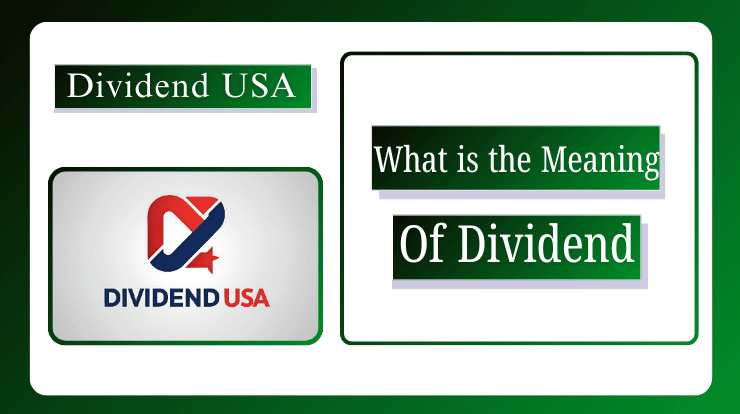What is the Meaning of Dividend?
What is a dividend? Learn how companies pay shareholders, types of dividends, and why they matter for passive income. Perfect for beginner investors!
David


What is the Meaning of Dividend? A Simple Explanation
Dividends are one of the most rewarding aspects of investing in stocks, but many beginners don’t fully understand them. If you’ve ever wondered, "What exactly is a dividend?" or "How do dividends work?", this guide breaks it down in simple terms.
Definition: What is a Dividend?
A dividend is a portion of a company’s profits paid out to its shareholders. Think of it like a reward for owning a stock—companies share their earnings with investors in the form of cash or additional shares. Check Out Our Dividend Reinvestment Calculator...
Key Takeaways:
✔ Dividends are regular payments (usually quarterly)
✔ Only profitable companies pay dividends
✔ Not all stocks pay dividends (e.g., growth stocks like Tesla don’t)
✔ Dividend amounts vary based on company performance
How Do Dividends Work?
1. Company Makes a Profit
A business earns money from sales, services, etc.
After expenses, taxes, and reinvestments, extra profit may be distributed as dividends.
2. Board of Directors Approves Dividend
The company’s leadership decides:
How much to pay per share
When to pay it (ex-dividend date)
3. Shareholders Receive Payment
If you own the stock before the ex-dividend date, you get paid.
Payments can be:
Cash (deposited into your brokerage account)
Additional shares (via DRIP—Dividend Reinvestment Plan)
Types of Dividends
1. Cash Dividend
Description: Paid in cash (most common type).
Example: $0.50 per share.
Details:
Deposited directly into your brokerage account.
Typically paid quarterly (e.g., Apple, Coca-Cola).
2. Stock Dividend
Description: Paid in additional shares instead of cash.
Example: 1 extra share for every 100 shares owned.
Details:
Increases the number of shares you hold.
No immediate tax impact until shares are sold.
3. Special Dividend
Description: One-time extra payment (not regular).
Example: $2.00 per share (rare).
Details:
Paid when a company has exceptional profits (e.g., after selling an asset).
Not guaranteed to repeat.
4. Preferred Dividend
Description: Fixed payouts for preferred shareholders.
Example: 5% annual yield.
Details:
Paid before common stockholders receive dividends.
Usually a fixed rate (like a bond).
Why Do Companies Pay Dividends?
1. Reward Shareholders – Attract long-term investors.
2. Signal Financial Health – Only stable companies can afford dividends.
3. Tax Benefits – Some investors prefer dividends over capital gains.
Important Dividend Terms
📅 Ex-Dividend Date – Last day to buy the stock & still get the dividend.
💰 Dividend Yield – Annual dividend ÷ stock price (e.g., 3% yield).
📈 Dividend Growth – How much the dividend increases yearly.
FAQs
Q: How often are dividends paid?
A: Mostly quarterly, but some pay monthly or annually.
Q: Can dividends be taxed?
A: Yes, but rates vary (often lower than salary income).
Q: How do I find high-dividend stocks?
A: Look for Dividend Aristocrats (companies that raised dividends for 25+ years).